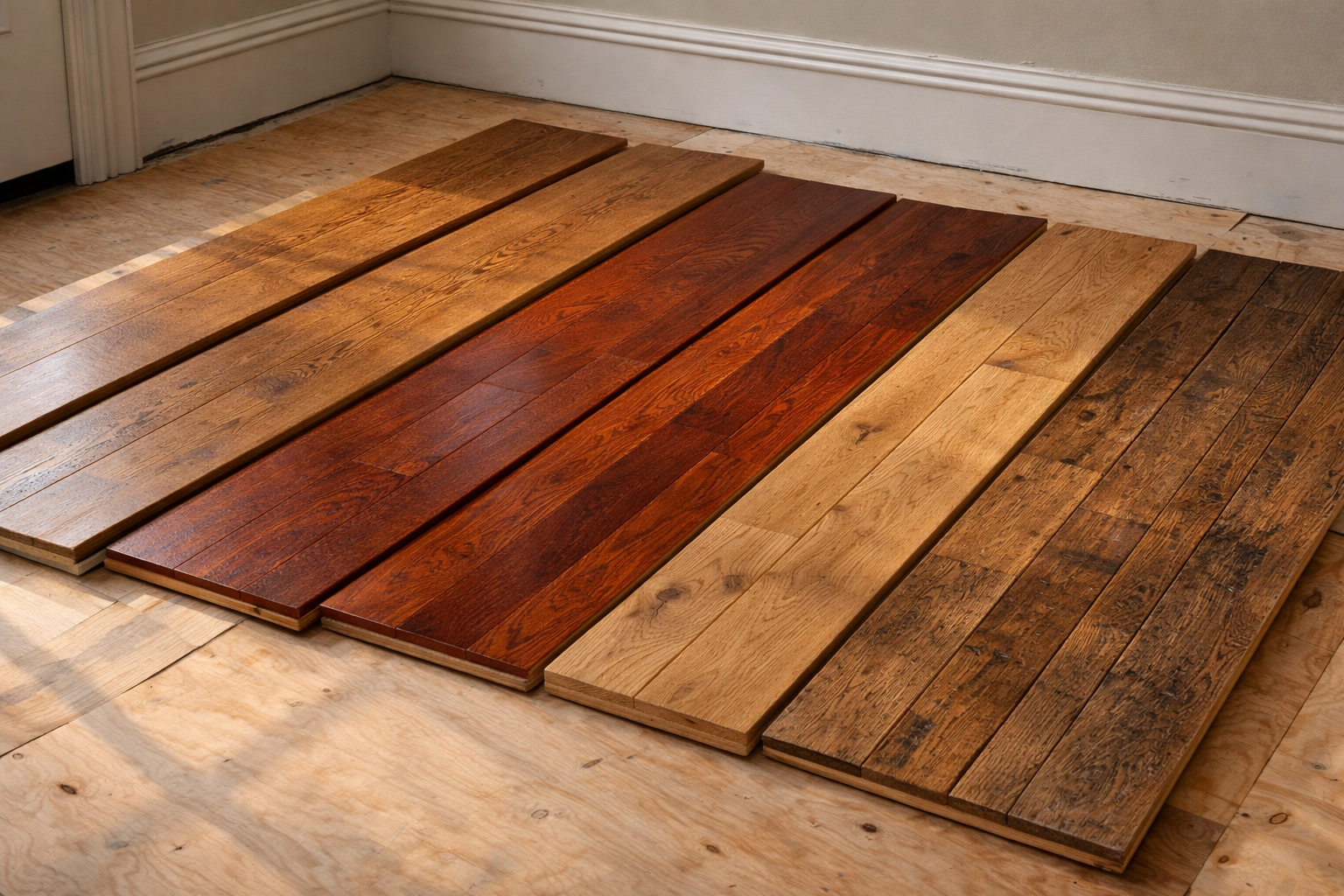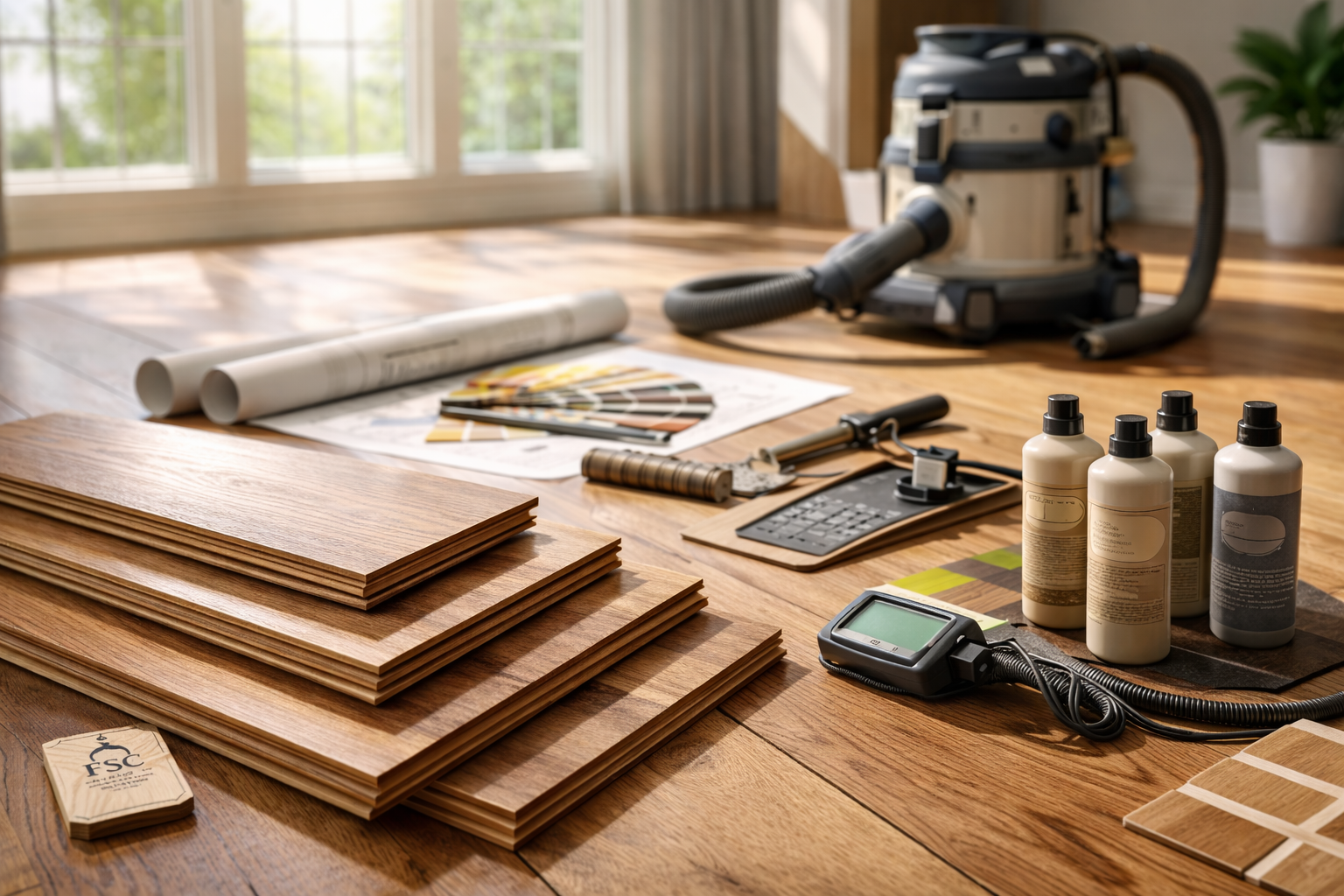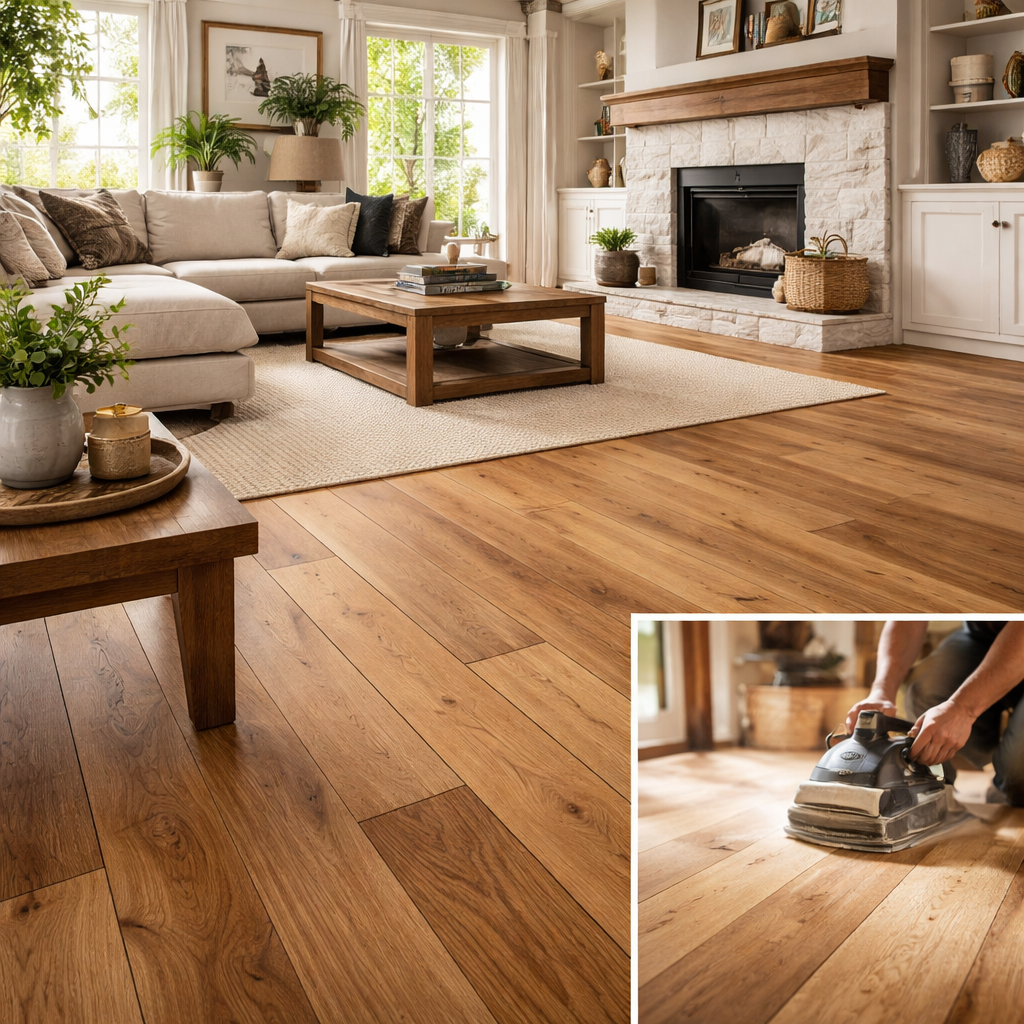Hardwood Flooring in Commercial Spaces: Durability, Maintenance, and Aesthetic Appeal
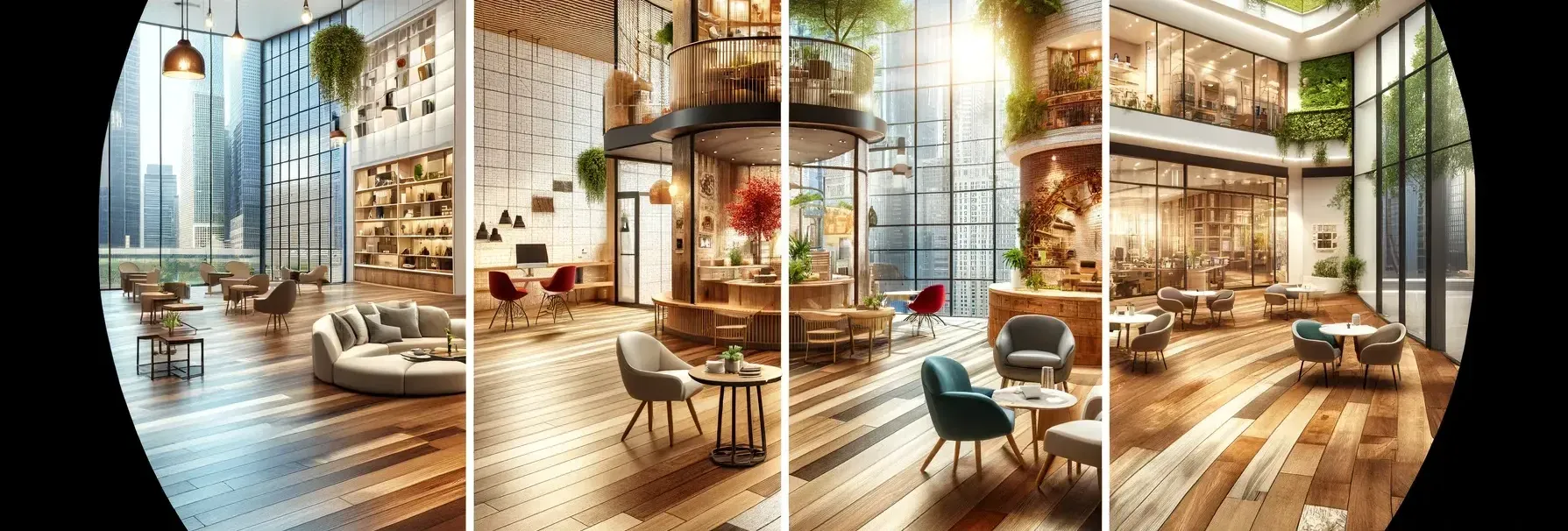
Hardwood flooring has long been cherished for its natural beauty and warmth in residential settings. However, its use in commercial spaces is often overlooked despite offering a plethora of benefits suited for business environments. From offices and boutiques to restaurants and galleries, hardwood flooring adds a touch of elegance, warmth, and sophistication that few other materials can match. This blog delves into the advantages of using hardwood flooring in commercial settings, supported by real-world case studies and examples that showcase its durability, ease of maintenance, and aesthetic appeal.
The Unparalleled Durability of Hardwood Flooring
Durability is a critical consideration for commercial spaces, which often experience heavy foot traffic. Hardwood floors, especially those made from hard species like oak, maple, and cherry, are inherently durable and capable of withstanding the demands of busy environments. When properly installed and finished, hardwood floors can last for decades, making them a cost-effective long-term investment.
Case Study: The High Line Hotel, New York City
The High Line Hotel in New York City exemplifies the durability of hardwood flooring in a commercial setting. Situated in a historic 1895 building, the hotel's hardwood floors have withstood over a century of use, contributing to the establishment's rustic charm and elegance. The choice of hardwood flooring in this high-traffic hospitality setting demonstrates its ability to endure the test of time while maintaining its aesthetic appeal.
Ease of Maintenance: A Practical Choice for Businesses
In the fast-paced world of commerce, the ease of maintenance is a valuable asset. Hardwood floors are surprisingly easy to care for, requiring only regular sweeping or vacuuming to remove dirt and debris, and occasional mopping with a wood floor cleaner. Moreover, hardwood floors do not harbor allergens, dust mites, or mold, making them a healthier choice for indoor air quality.
Example: Apple Retail Stores Worldwide
Apple's choice of hardwood flooring for its retail stores worldwide speaks volumes about the practicality of hardwood in commercial applications. These retail environments experience exceptionally high foot traffic, yet the floors remain pristine and inviting. The secret lies in the careful selection of finishes that protect the wood and make cleaning a breeze, ensuring the stores' aesthetic appeal is always at its best.
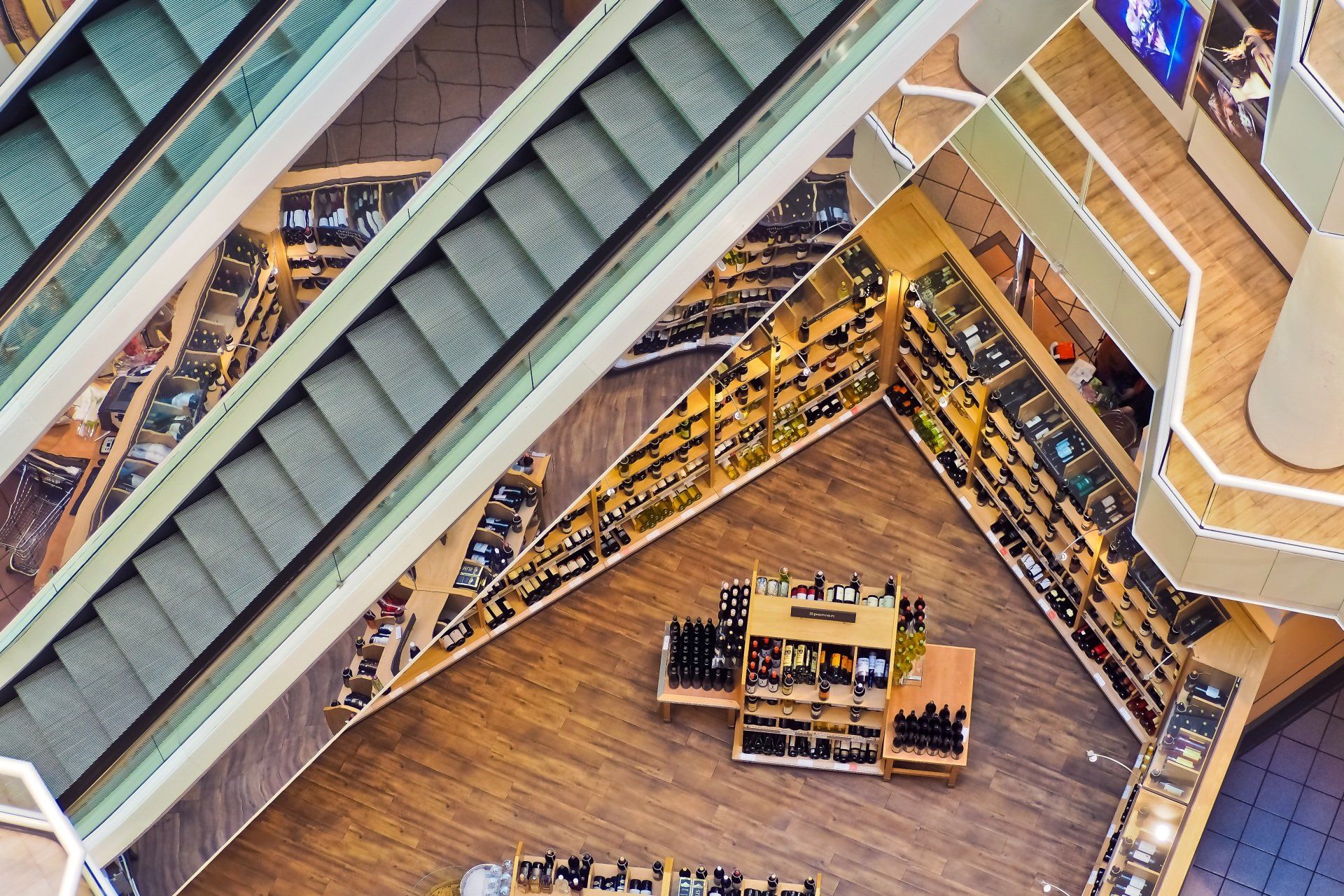
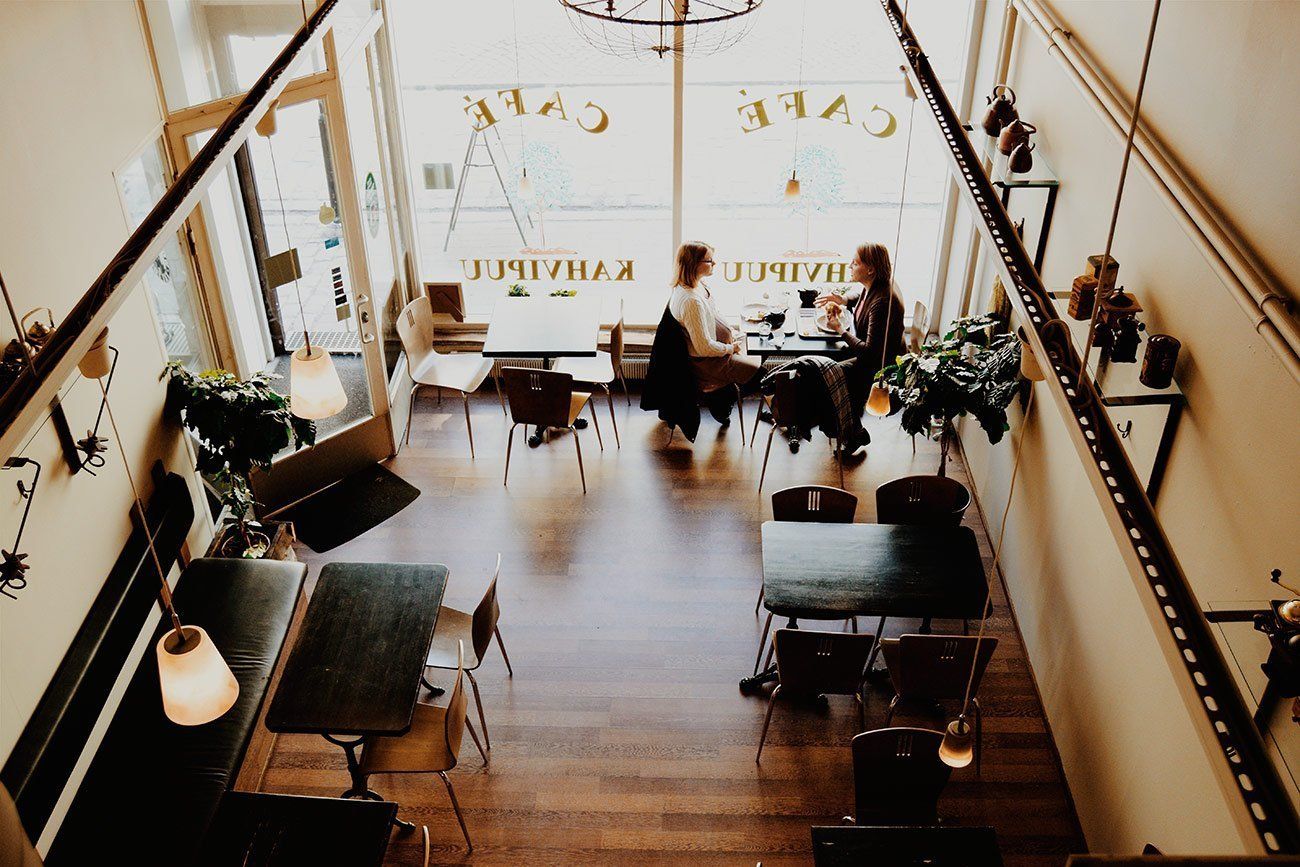
Aesthetic Appeal: Elevating Brand Perception
Hardwood flooring offers a timeless appeal that can elevate the perception of any brand or business. It exudes warmth, elegance, and quality, creating an inviting atmosphere for customers and employees alike. Furthermore, the versatility of hardwood, with its myriad of species, stains, and finishes, allows for customization that can reflect a company's brand identity or the desired ambiance of a space.
Case Study: Starbucks Coffee Outlets
Starbucks has effectively used hardwood flooring to create a warm, welcoming environment in its coffee outlets around the globe. The use of dark-stained oak floors complements the brand's cozy and sophisticated image, encouraging customers to linger. This strategic use of hardwood flooring not only enhances the customer experience but also reinforces Starbucks' brand identity as a premium coffeehouse.
The Sustainability Advantage
Sustainability is an increasingly important consideration for businesses, and hardwood floors offer an eco-friendly flooring solution. Wood is a natural, renewable resource, and many hardwood flooring options come from sustainably managed forests. Additionally, the longevity of hardwood floors means less waste over time, contributing to their environmental appeal.
Example: The Bullitt Center, Seattle
The Bullitt Center in Seattle, heralded as the greenest commercial building in the world, showcases the sustainability of hardwood flooring. The building's use of Forest Stewardship Council (FSC)-certified hardwood reflects its commitment to environmental responsibility while maintaining a high standard of aesthetic and functional design.
Innovation in Hardwood Flooring for Commercial Use
Advancements in hardwood flooring technology have further enhanced its suitability for commercial use. Engineered hardwood floors, for example, offer increased stability and resistance to moisture, making them ideal for a wide range of commercial applications, including below-grade installations.
Case Study: The Brooklyn Botanic Garden Visitor Center
The Brooklyn Botanic Garden Visitor Center is a testament to the innovation in hardwood flooring for commercial spaces. The center features engineered hardwood flooring that gracefully navigates the challenges of a high-humidity environment while blending seamlessly with the natural surroundings. This application showcases the technical advancements that make hardwood a versatile choice for commercial design.
Conclusion
Hardwood flooring offers a unique combination of durability, ease of maintenance, aesthetic appeal, and sustainability that make it an excellent choice for commercial spaces. Through real-world examples and case studies, it's clear that hardwood floors can withstand the rigors of commercial use while providing a warm, inviting atmosphere that enhances brand perception. As businesses continue to seek out materials that are both practical and aesthetically pleasing, hardwood flooring stands out as a superior choice that meets these diverse needs. Whether for a boutique hotel, a bustling retail store, or an eco-conscious office building, hardwood flooring brings timeless elegance and lasting value to any commercial setting.

